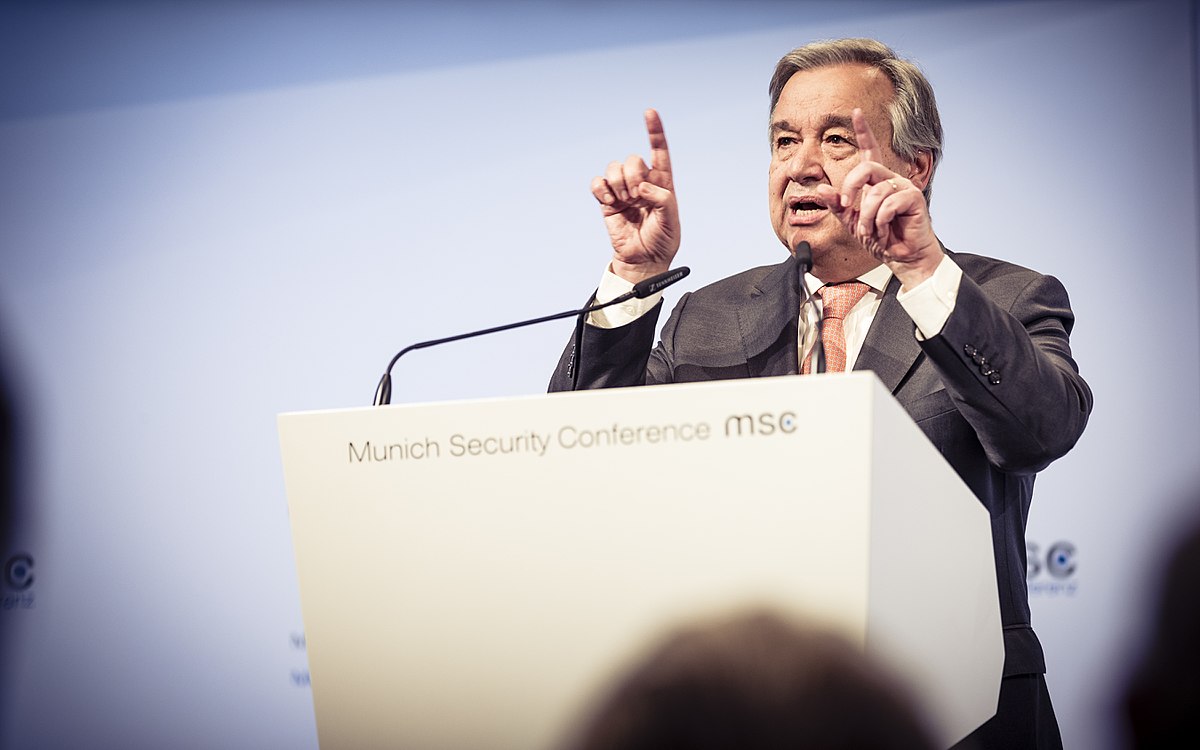‘Gates of Hell’ Must Be Closed With Ambitious Action on Fossil Fuels, Says UN Chief

Original article by Jessica Corbett republished from Common Dreams under Creative Commons (CC BY-NC-ND 3.0).
“We must make up time lost to foot-dragging, arm-twisting, and the naked greed of entrenched interests raking in billions from fossil fuels.” [FFS]
United Nations Secretary-General António Guterres kicked off his one-day Climate Ambition Summit at U.N. headquarters in New York City on Wednesday with a simple, clear, and resounding message for world leaders: do more.
“Humanity has opened the gates of hell” by unleashing potent levels of greenhouse gas emissions into the environment since the Industrial Revolution, Guterres told the the audience, which notably did not include some leaders of top polluting nations—such as U.S. President Joe Biden, U.K. Prime Minister Rishi Sunak, and Chinese President Xi Jinping—who refused to attend the event.
“Horrendous heat is having horrendous effects,” Guterres said, echoing his Tuesday speech at the U.N. General Assembly. “Distraught farmers watching crops carried away by floods; sweltering temperatures spawning disease; and thousands fleeing in fear as historic fires rage.”
“Climate action is dwarfed by the scale of the challenge,” he continued. Absent dramatic reforms, humanity is heading toward “a dangerous and unstable world,” with the global temperature set to soar 2.8°C above preindustrial levels. Already, human activity—especially the burning of fossil fuels—has driven heated the planet by about 1.2°C.
“The future of humanity is in your hands—in our hands.”
Under the 2015 Paris climate agreement, nearly every nation on Earth has agreed to work on keeping global temperature rise this century below 2°C, with a target limit of 1.5°C. However, as scientific analyses have repeatedly found over the past eight years, parties to the deal are still way off track.
Current projections are alarming, “but the future is not fixed,” Guterres said, emphasizing that the 1.5°C goal is still in reach. “We can still build a world of clear air, green jobs, and affordable, clean power for all.”
“The path forward is clear,” he declared. “It has been forged by fighters and trailblazers—some of whom are with us today: Activists refusing to be silenced; Indigenous peoples defending their lands from climate extremes; chief executives transforming their business models and financiers funding a just transition; mayors moving towards to a zero-carbon future; and governments working to stamp out fossil fuels and protect vulnerable communities.”
Warning that the global community is decades behind where it should be in the shift to renewables, the U.N. chief charged that “we must make up time lost to foot-dragging, arm-twisting, and the naked greed of entrenched interests raking in billions from fossil fuels.”
Guterres renewed his call for developed countries to reach net-zero as close as possible to 2040, emerging economies to achieve that as close as possible to 2050, and all nations “to implement a fair, equitable, and just energy transition, while providing affordable electricity to all.”
“Many of the poorest nations have every right to be angry—angry that they are suffering most from a climate crisis they did nothing to create; angry that promised finance has not materialized; and angry that their borrowing costs are sky-high,” he noted. “We need a transformation to rebuild trust.”
Shifting from English to French—another official language of the U.N.—Guterres urged governments to push the global financial system toward supporting climate action, including by overhauling the business models of multilateral development banks to better help developing countries.
He also called for operationalizing the Loss and Damage Fund at COP28, the next U.N. climate summit for Paris agreement parties, hosted in November by the United Arab Emirates—which is under fire for appointing an oil executive as the conference president.
“The future of humanity is in your hands—in our hands,” added Guterres, who was forced to leave early on Wednesday for a U.N. Security Council meeting that was scheduled after he announced the climate event. “One summit will not change the world. But today can be a powerful moment to generate momentum, that we build on over the coming months, and in particular at the COP.”
“We can—and we must—turn up the tempo,” he concluded. “Turn plans into action. And turn the tide.”
Original article by Jessica Corbett republished from Common Dreams under Creative Commons (CC BY-NC-ND 3.0).
